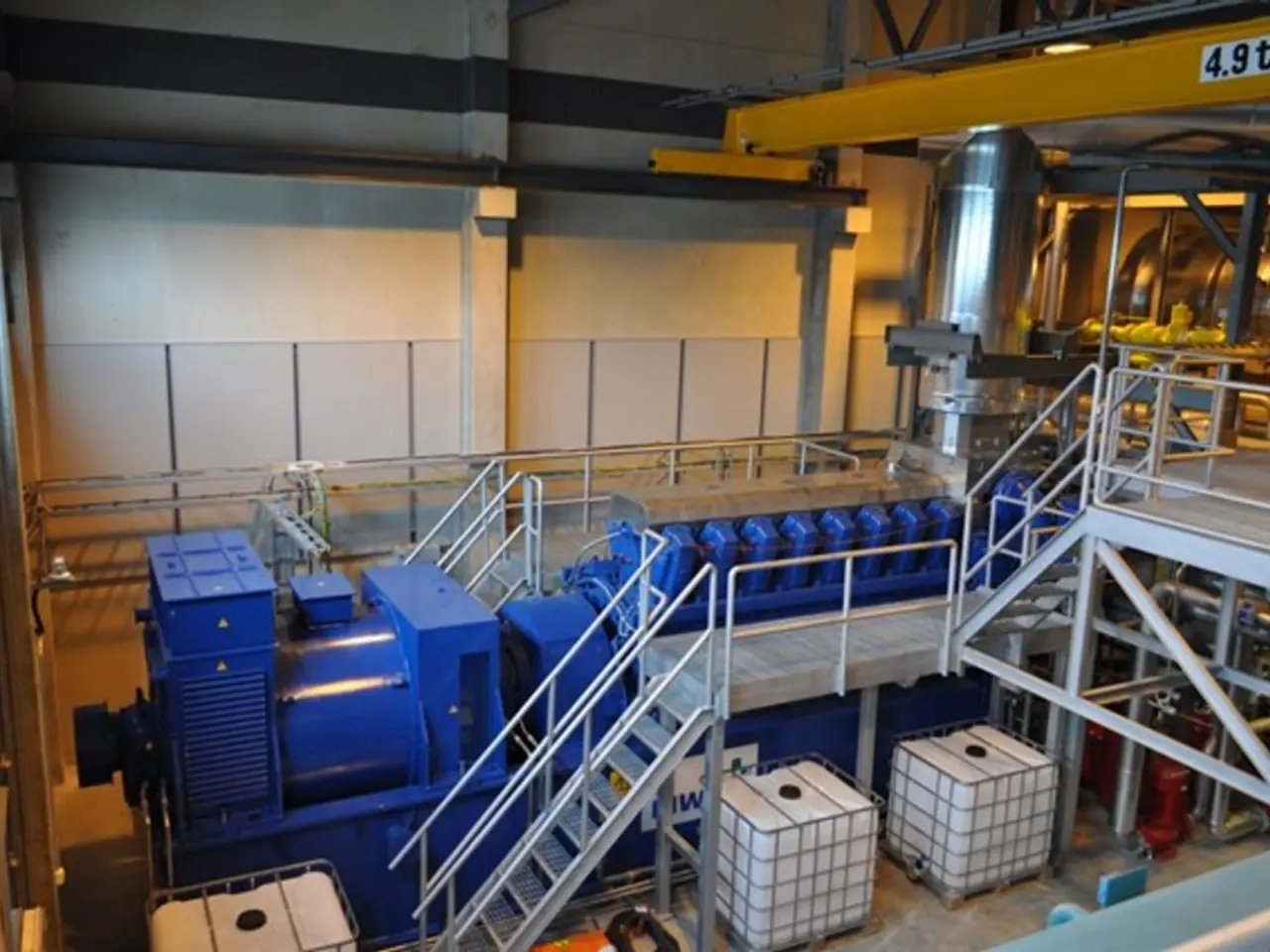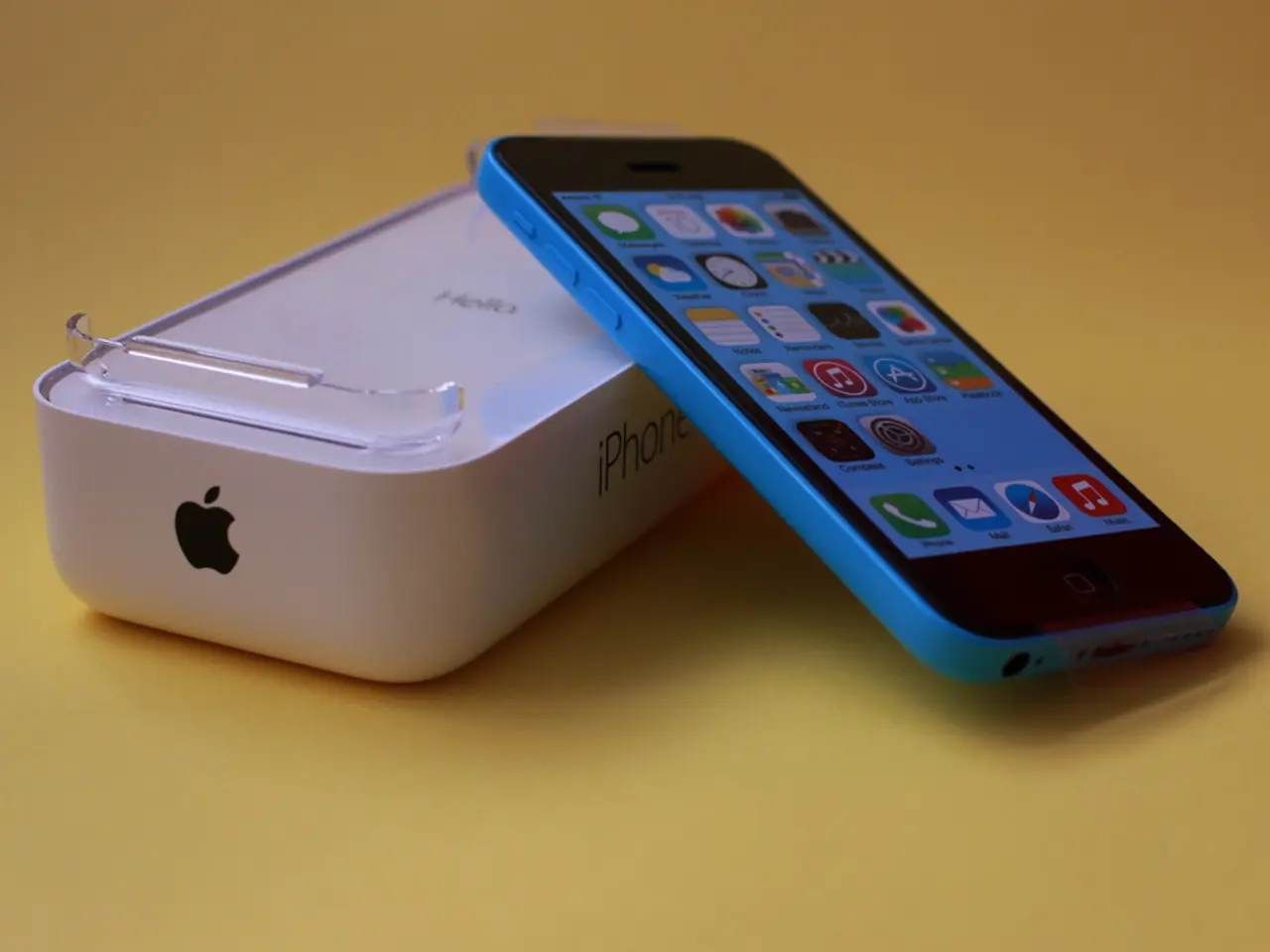Brompton's Fifty-Year Journey: Innovating Folding Bicycles as a Trailblazing Brand
Brompton, a British bike manufacturer founded in 1975, has been a trailblazer in the world of folding bike technology. Located in Greenford, north-west London, the company's factory produces a range of bicycles, including the Brompton G Line, T Line, C Line, A Line, and P Line.
The overall goal at Brompton is to find the perfect balance between durability and lightness in their designs. To achieve this, they use a brazing method of joining metal instead of conventional welding for a more durable joint with better toleration for the folding mechanism.
Brompton collaborates with various specialized suppliers for key components such as hubs, rims, brakes, cables, and mudguards. They often opt for high-quality, durable parts that suit their folding bike design, although specific supplier names are typically not publicly detailed.
Hubs and Rims
Traditionally, Brompton bikes use hubs from specialist manufacturers focusing on durability and performance for folding bikes. Well-known hub makers like Sturmey-Archer or proprietary Brompton hubs are often used, and rims are usually robust, made to fit Brompton’s compact wheel size. Aftermarket suppliers like Litepro and others offer compatible bike parts including rims for Brompton models.
Brakes
Brompton generally uses rim brakes optimized for their small wheel size. Aftermarket stores like Condor Cycles and Blue Lug carry various brake components compatible with Brompton, including rim brakes and brake levers. Specific Brompton brakes are designed to fold neatly with the frame.
Cables
Brompton’s brake and gear cables are specialized for the folding frame geometry and routing. Replacements and upgrades are available through Brompton dealers or third parties, but detailed supplier information is not standardly public.
Mudguards
Brompton’s mudguards are designed to fit its unique small wheel and folding frame. Aftermarket parts cater to Brompton’s exact sizes and folding mechanism requirements.
While detailed original equipment manufacturer (OEM) suppliers for Brompton’s hubs, rims, brakes, cables, and mudguards are not explicitly listed in public domain sources, Brompton has a proven history of working closely with specialized bike component manufacturers to ensure durability and foldability. Aftermarket suppliers like Litepro, Blue Lug, and Condor Cycles provide compatible replacement parts and accessories tailored to Brompton bikes.
Some custom parts, for example, wheel extenders or frame protectors, are produced using aerospace-grade metals for enhanced performance and durability as seen in products offered on platforms like Etsy.
A Focus on Durability
Durability is a key focus for Brompton, with components being tested to destruction to ensure they can withstand urban life conditions. The switch to titanium for the flagship T Line has addressed the original Brompton's heft issue, making it more durable and lightweight.
A British Icon
Brompton has a rich history of collaborations with fashion brands such as Anya Hindmarsh, Palace, Freitag, and Oliver Spencer on special orders and custom requests. The company is one of the few major manufacturing concerns to remain in London, embodying British craftsmanship and innovation.
In a future where urban mobility comes under more scrutiny, Brompton sees a role for itself, with electric G Lines being ridden by team members for efficient city travel. The company is currently in a design renaissance, exploring and re-evaluating every facet of its bikes' form, material, and mission.
Cost is a consideration, with a single-speed T Line starting at £4,250, compared to £1,449 for the original six-speed C Line. Despite this, Brompton continues to be a popular choice for those seeking a durable, foldable, and stylish bicycle.
The R&D department of Brompton is located near the main factory, testing prototypes and new innovations. The team consists of individuals from various industries, including automotive, military, and aerospace, bringing a wealth of knowledge and expertise to the table.
With a production of around 2,000 bicycles per week, Brompton is a testament to the enduring appeal of its unique folding bike technology. Despite the challenges posed by the pandemic, the company managed to increase production to a peak of 2,700 bicycles per week during Covid.
In conclusion, Brompton is a British icon in the world of folding bike technology, combining durability, lightness, and style to create a product that is both practical and desirable. Whether you're commuting to work, exploring the city, or simply enjoying a leisurely ride, a Brompton bike offers a unique and enjoyable riding experience.
The company works with specialized hub manufacturers, such as Sturmey-Archer and proprietary Brompton hubs, ensuring durability and performance for their folding bikes.
Brompton's focus on durability extends to each component, with their mudguards, rims, brakes, and cables all designed to complement the unique folding frame geometry and withstand urban conditions.




